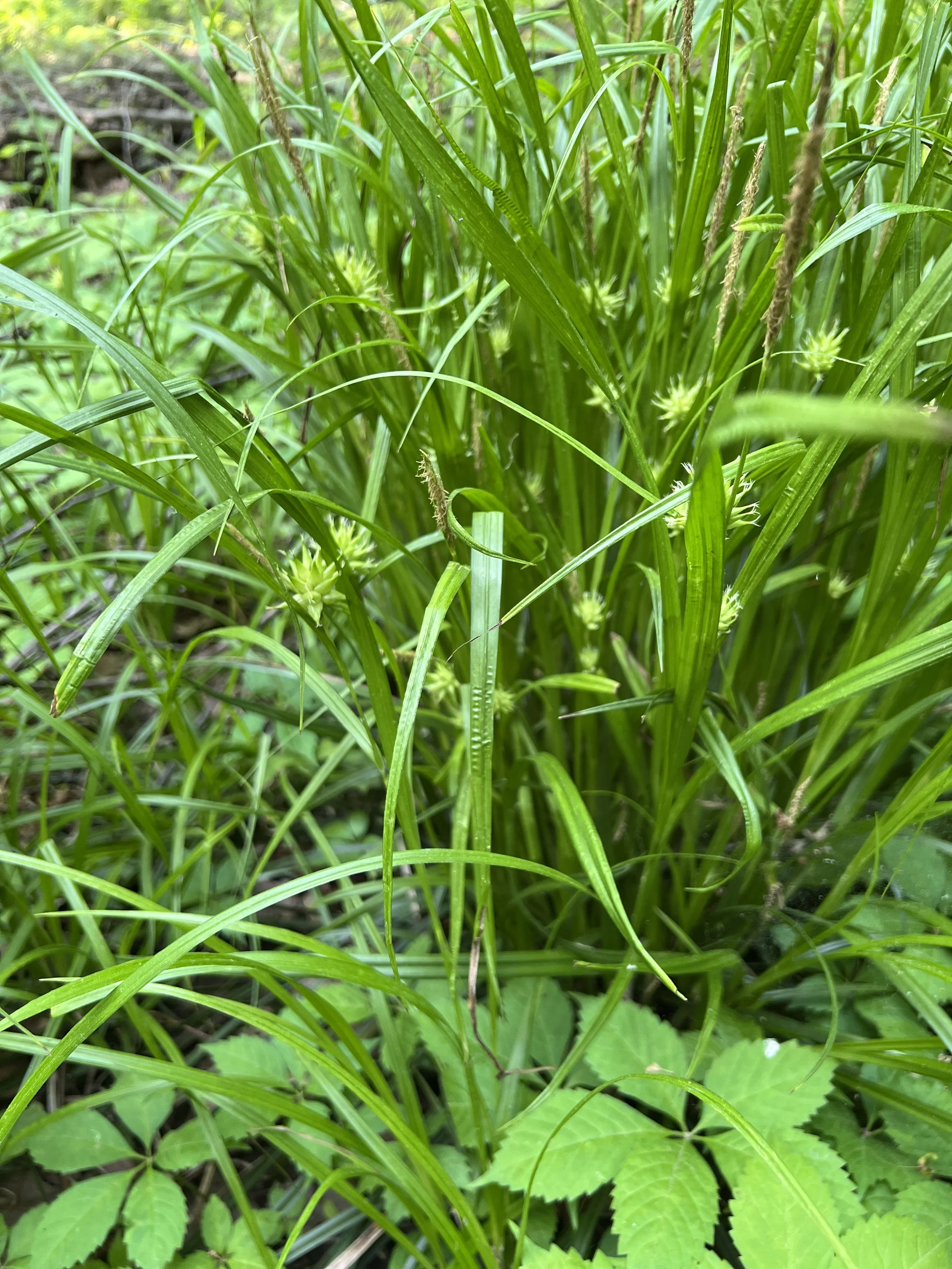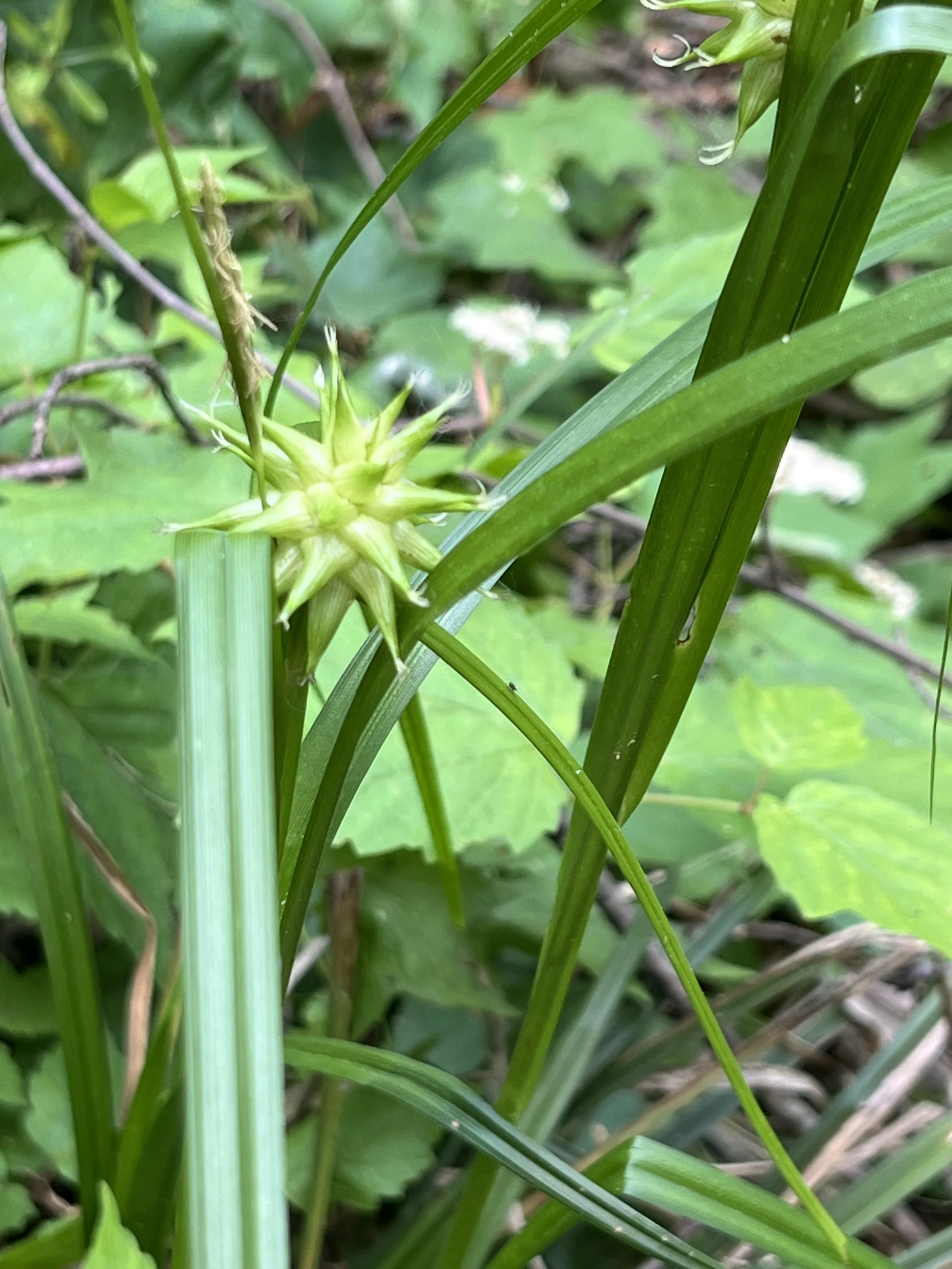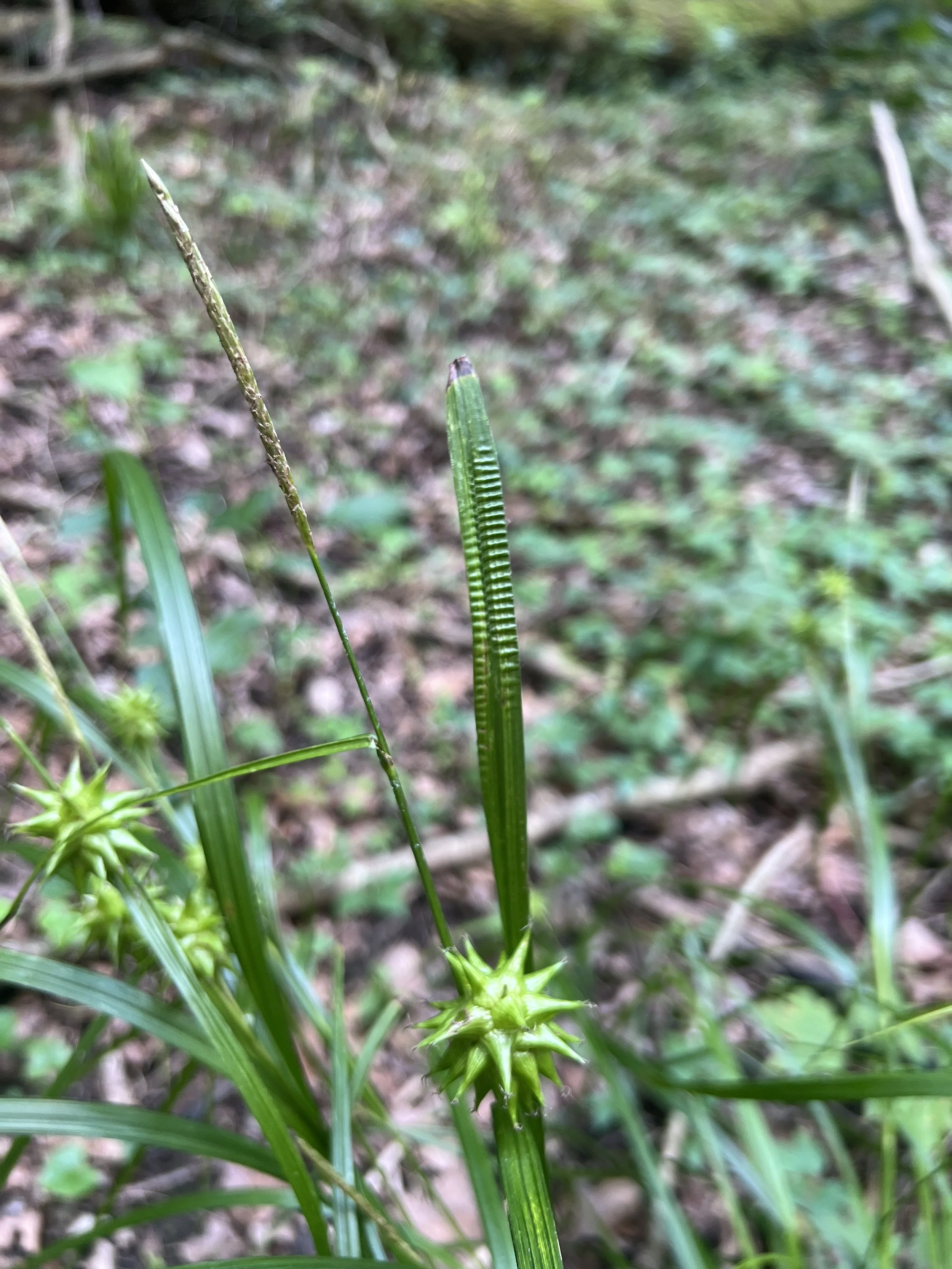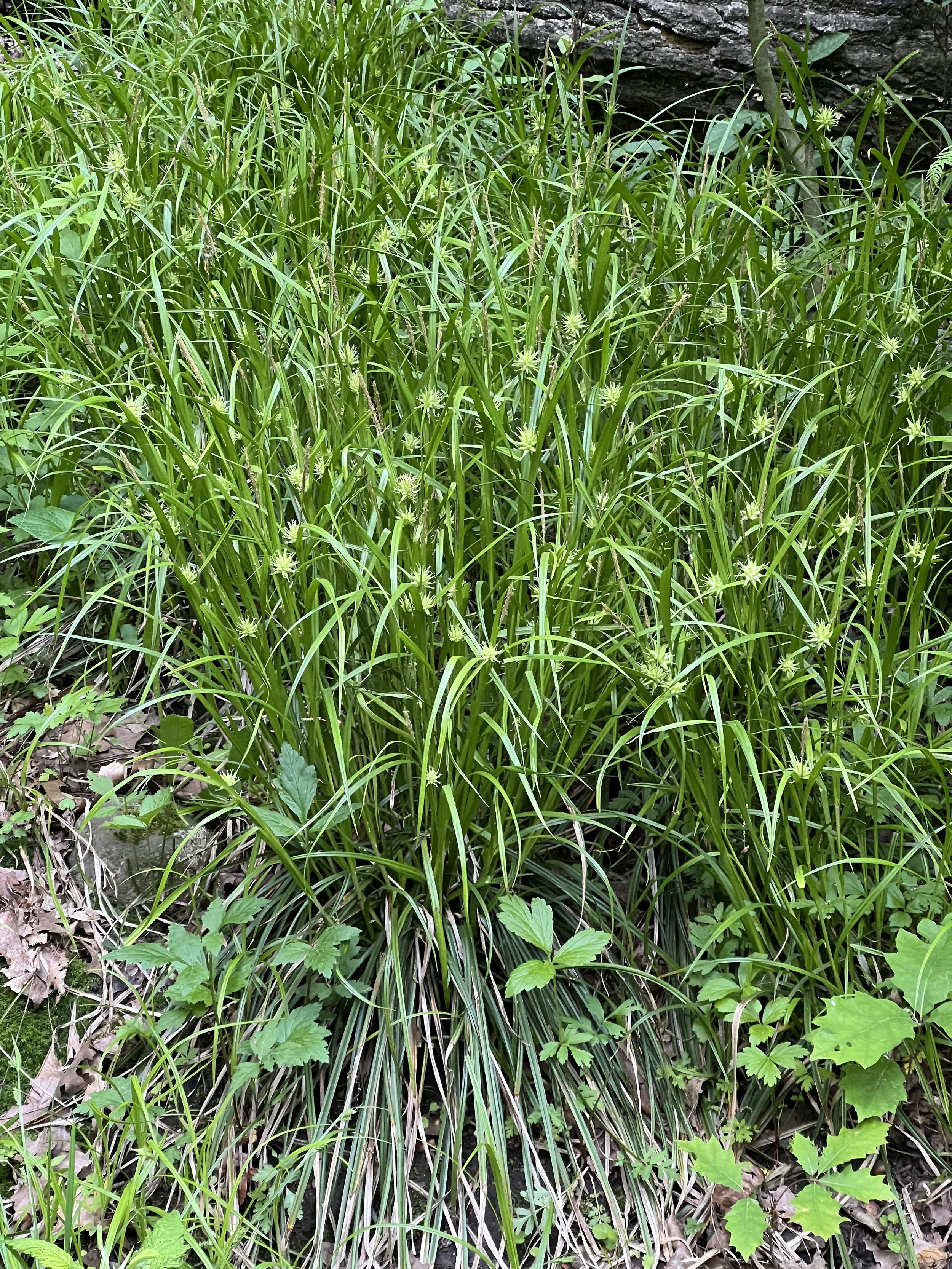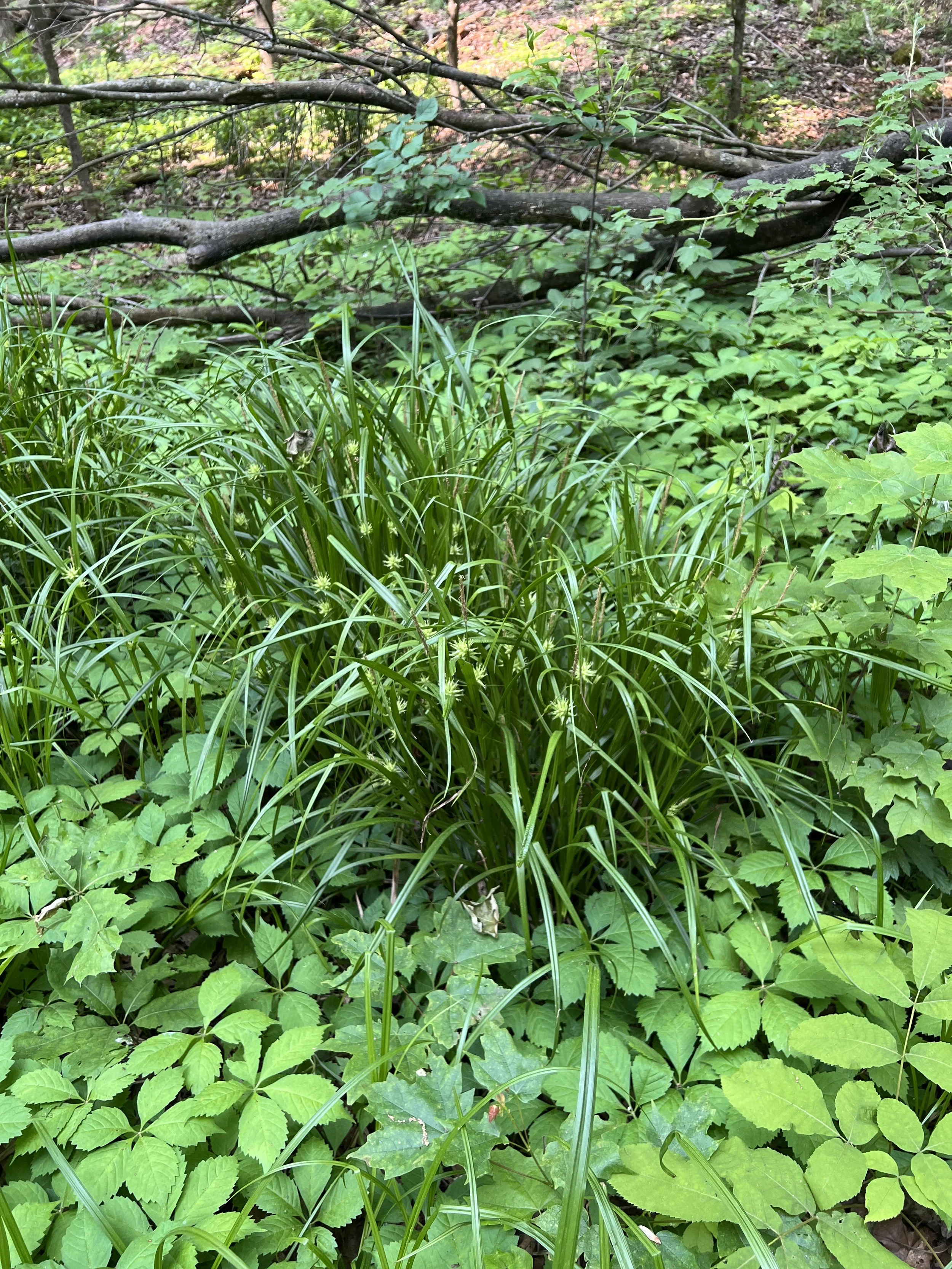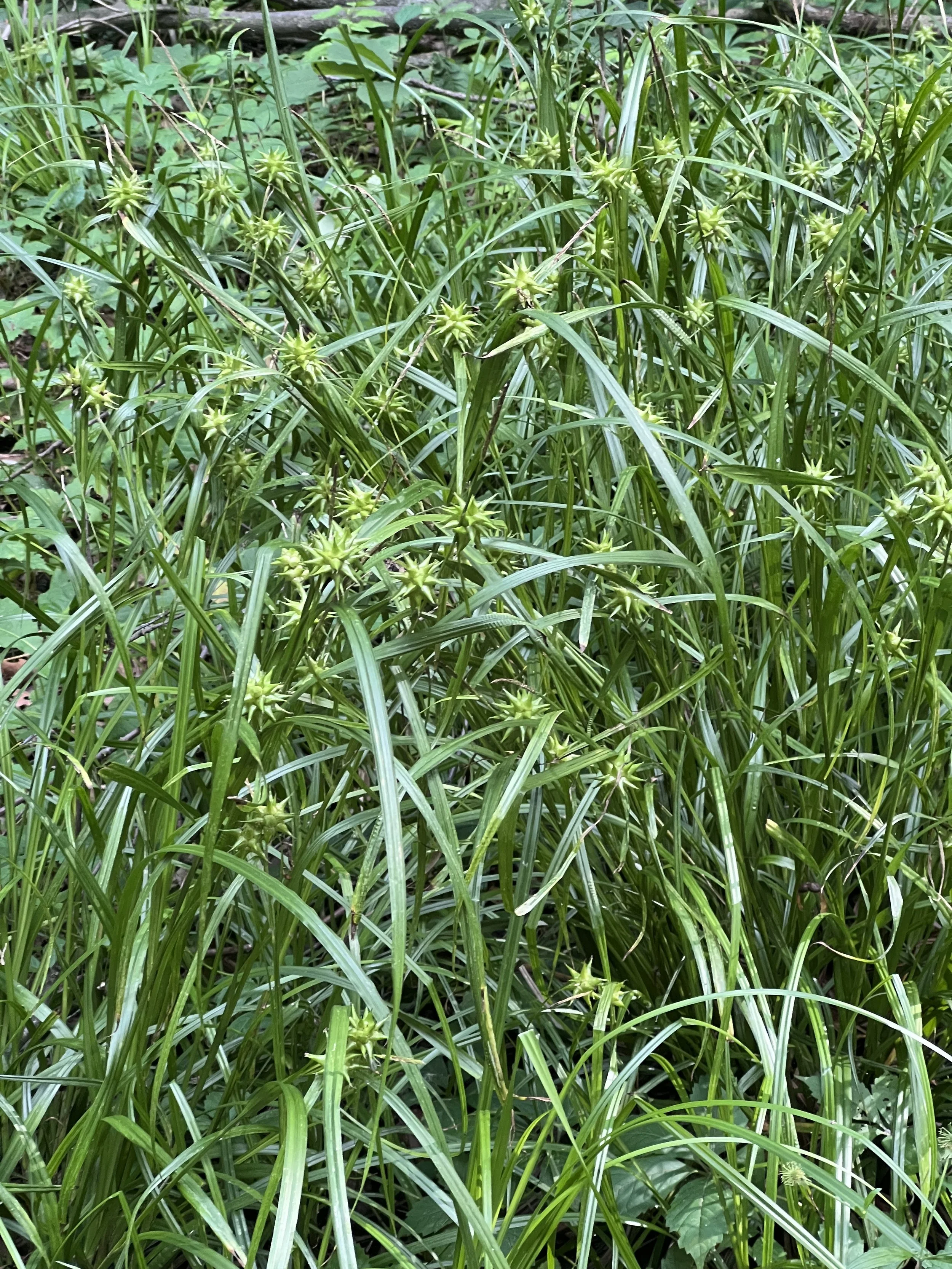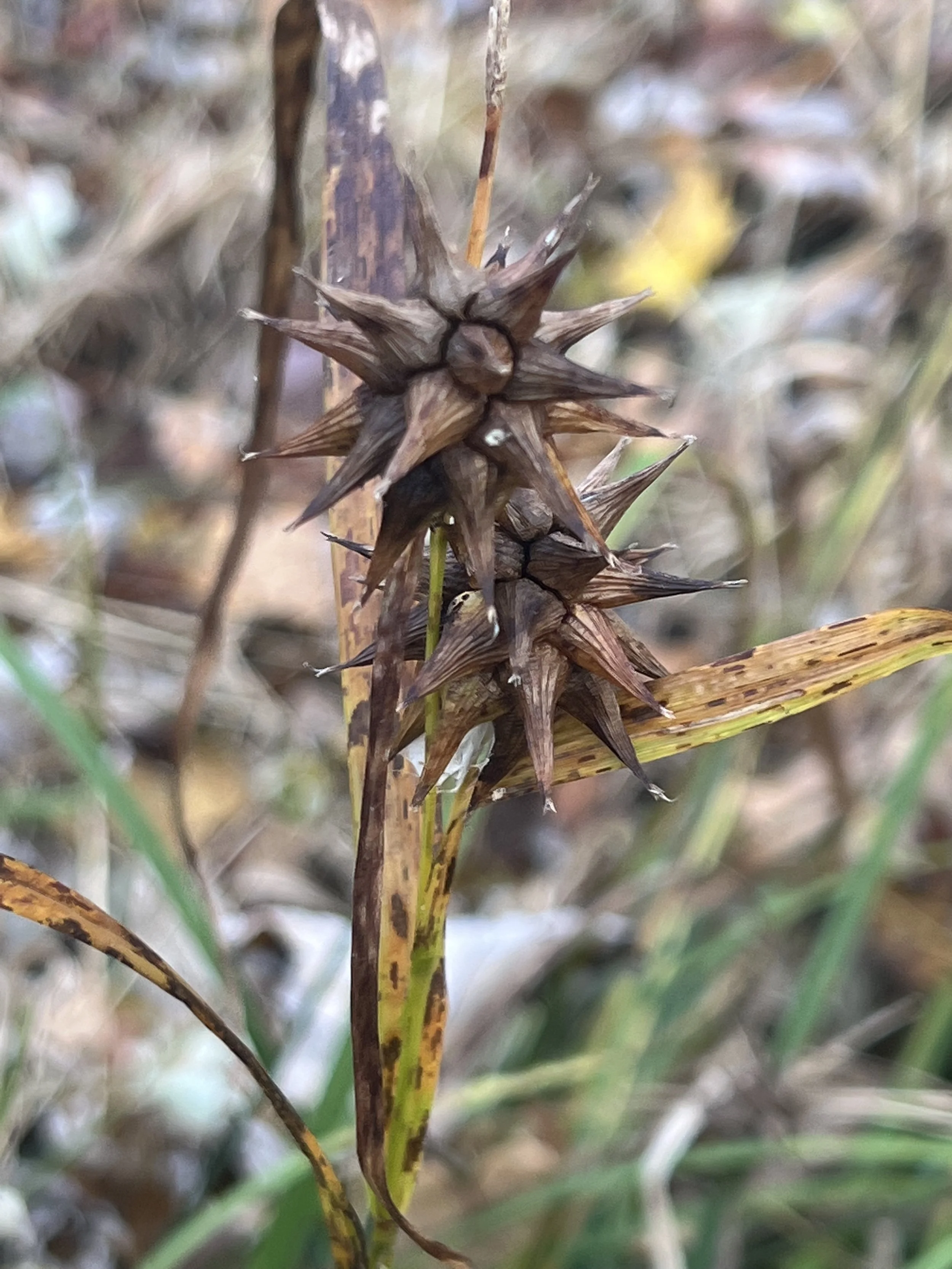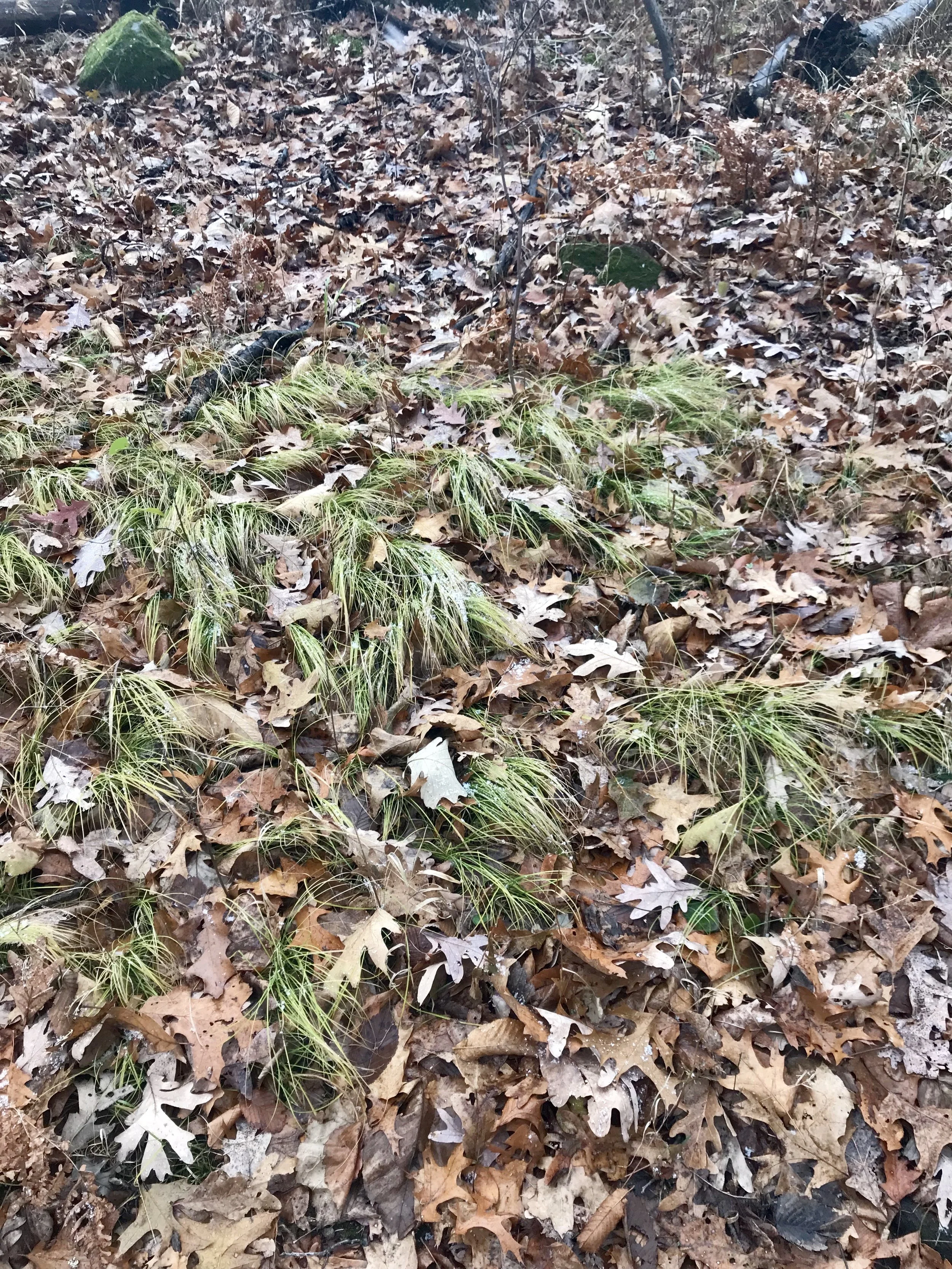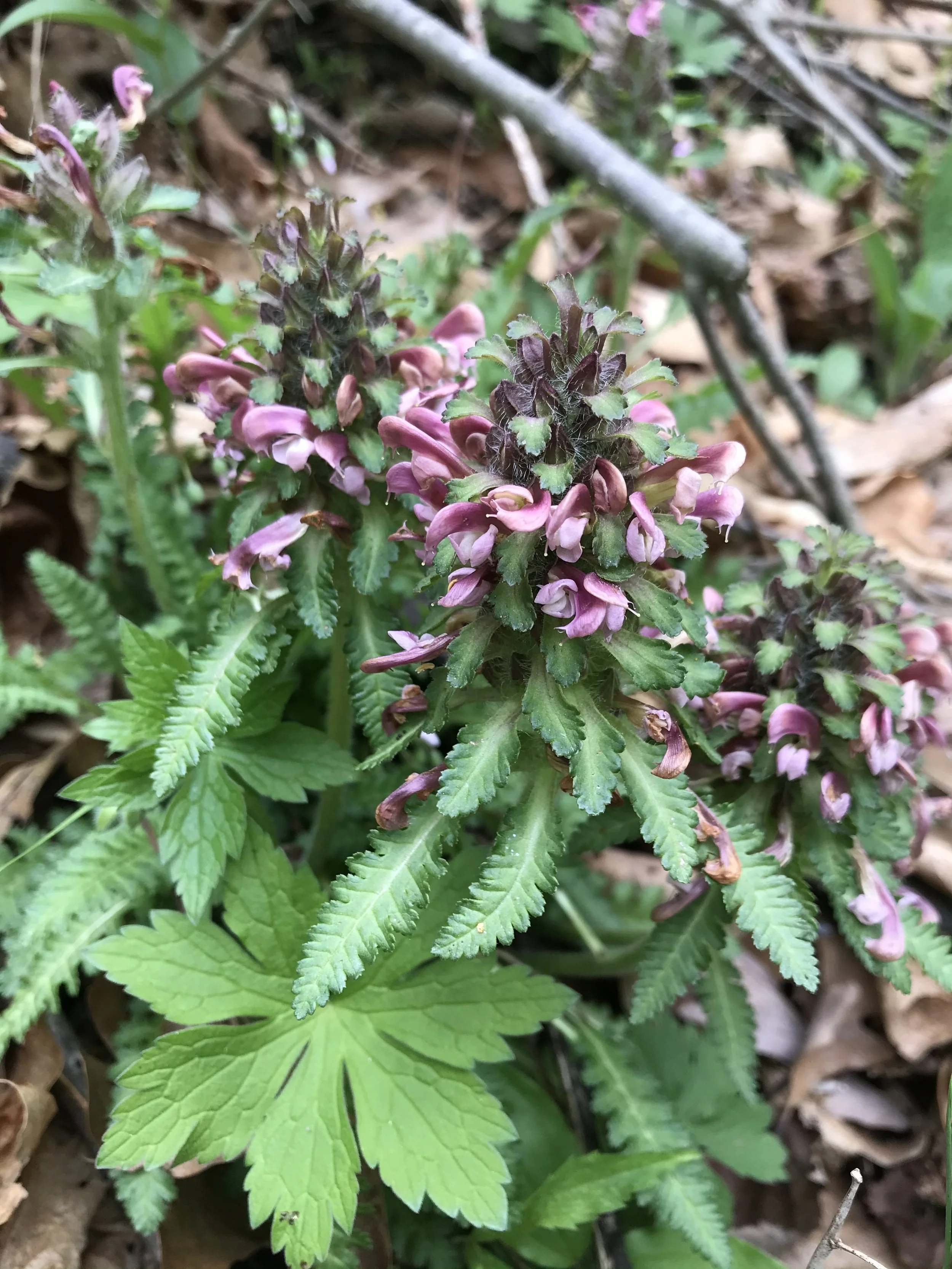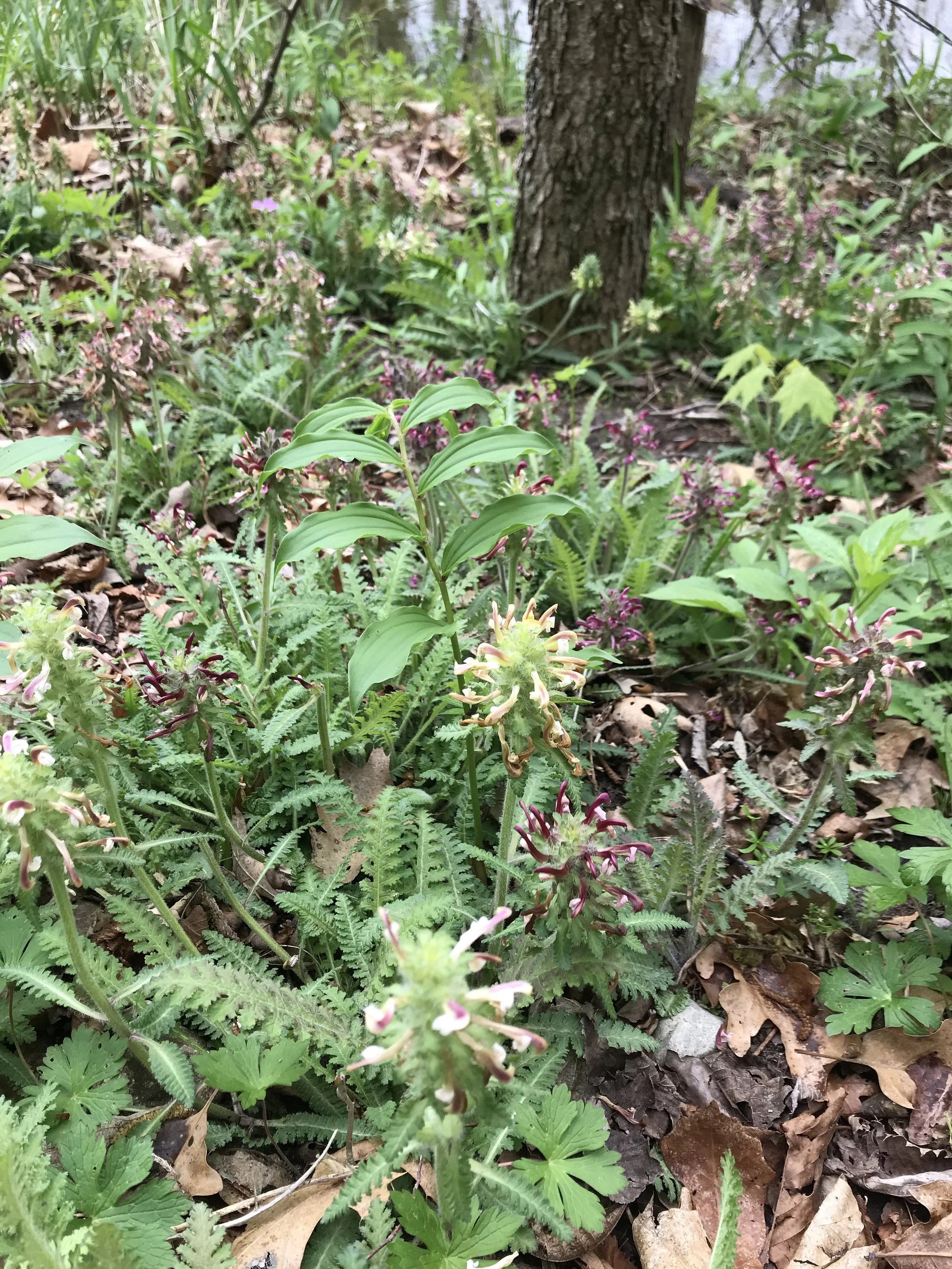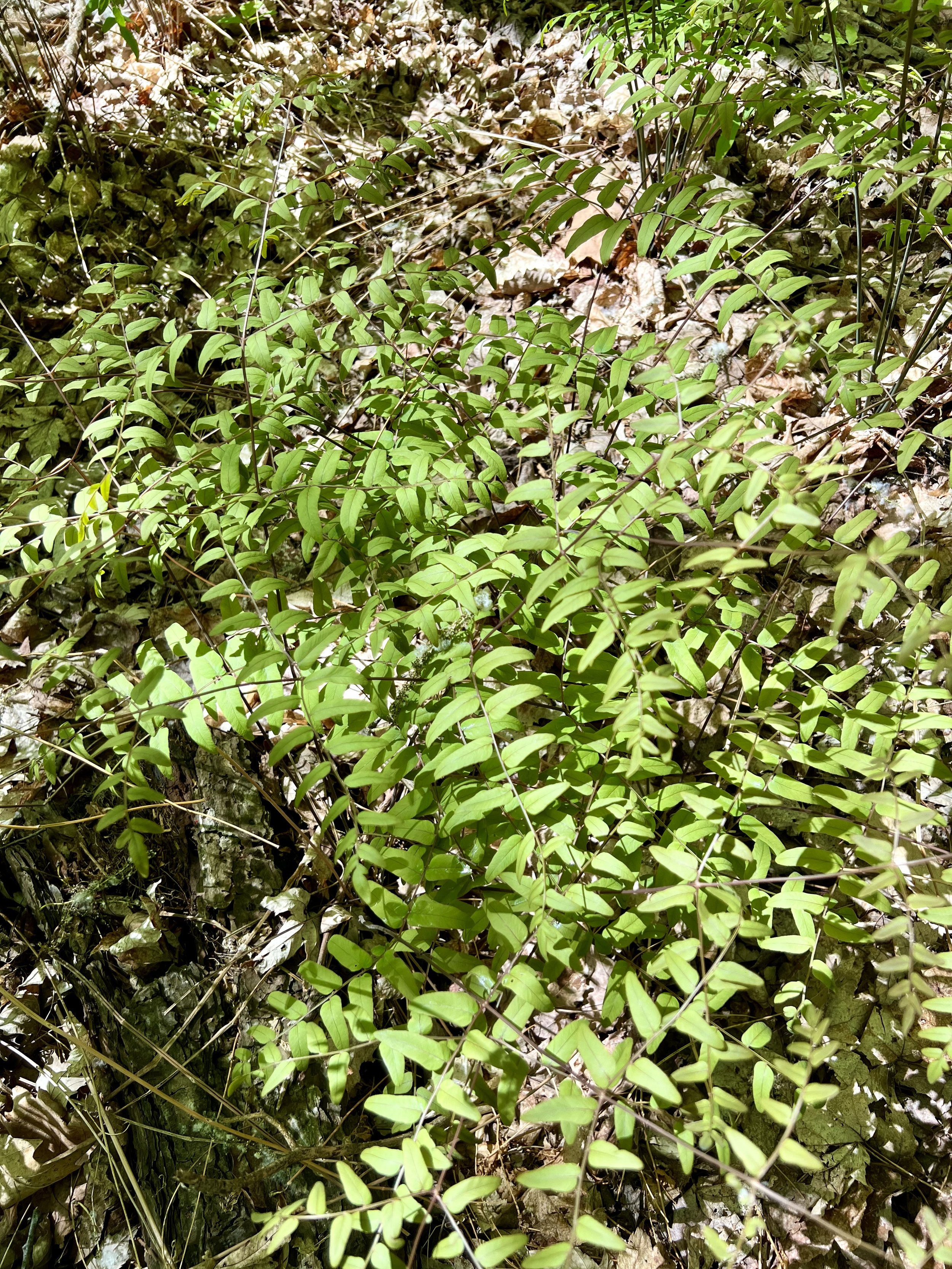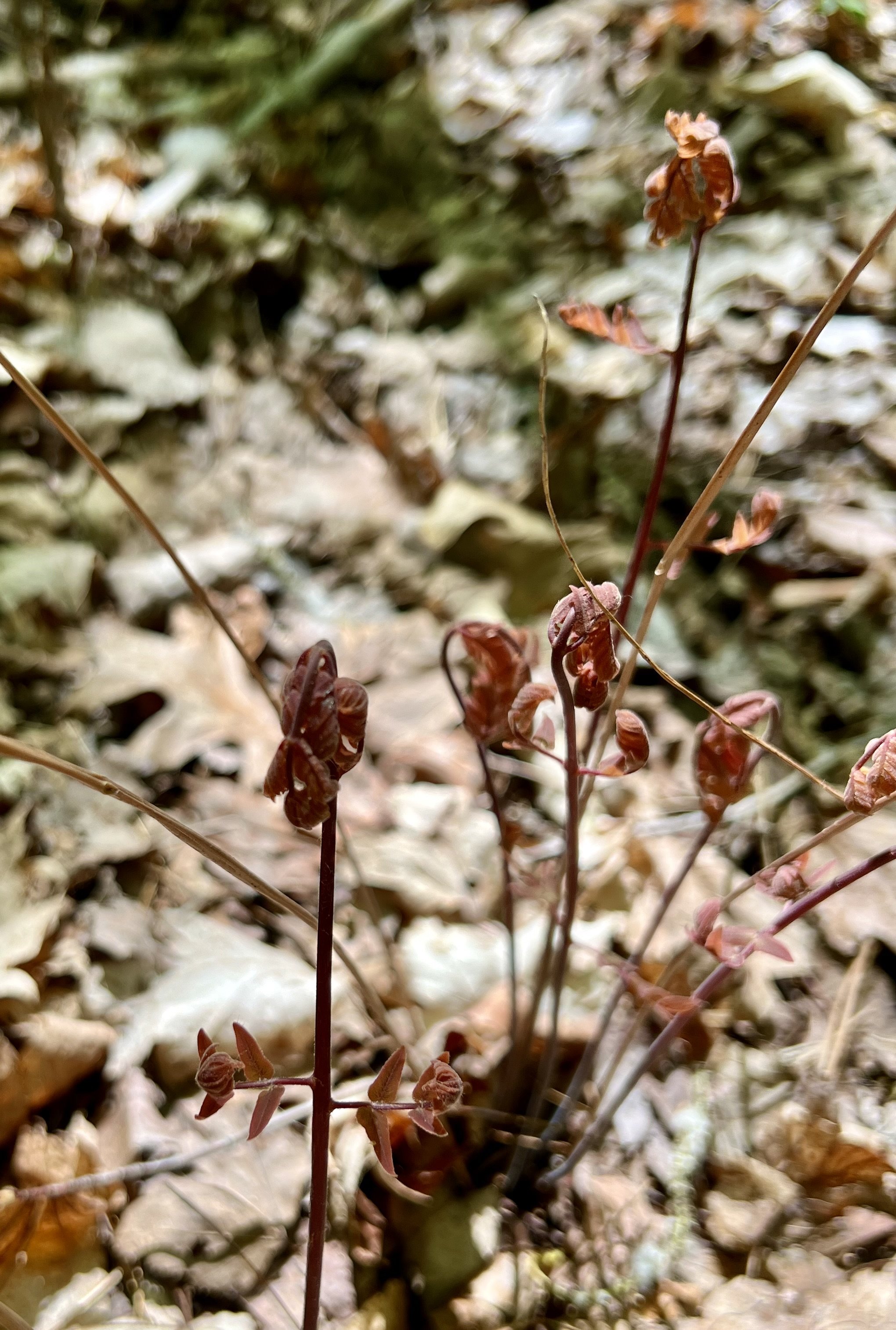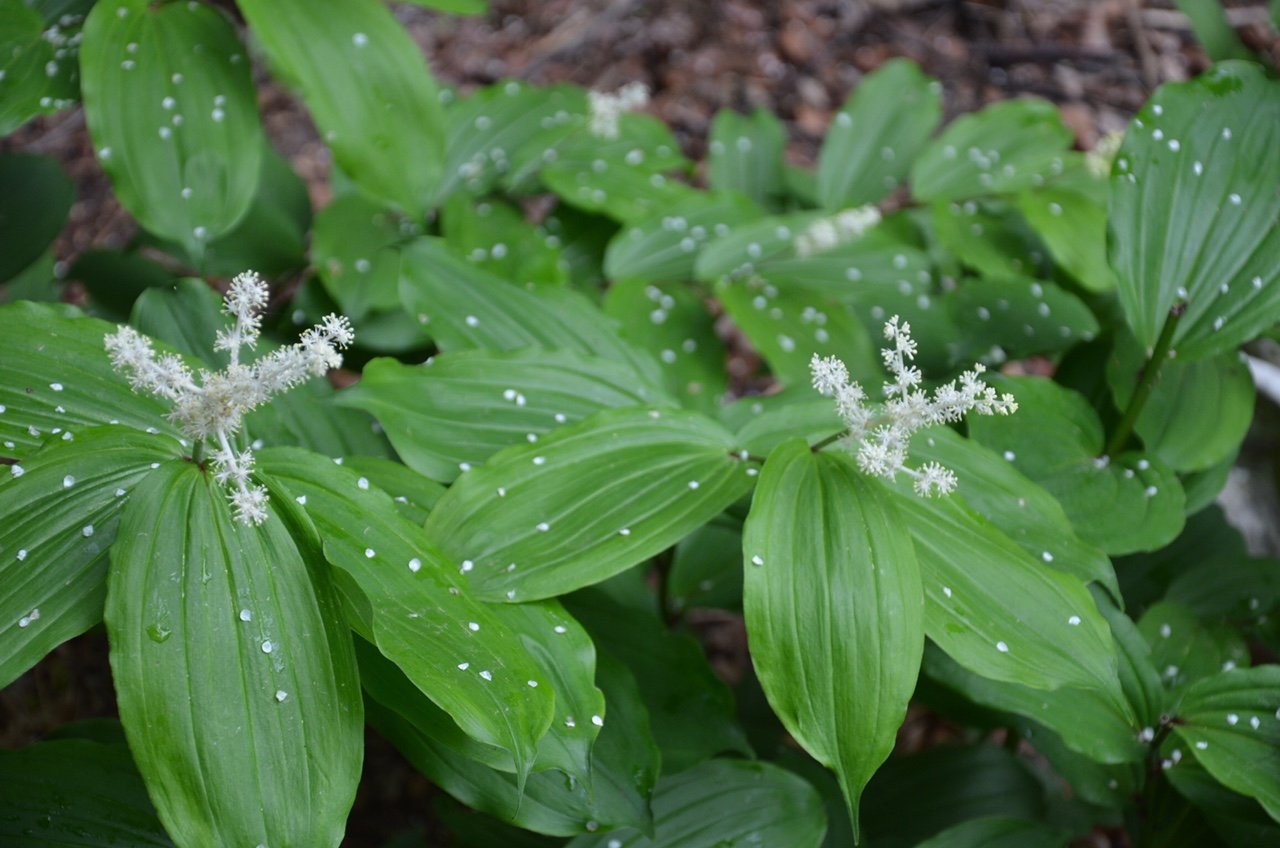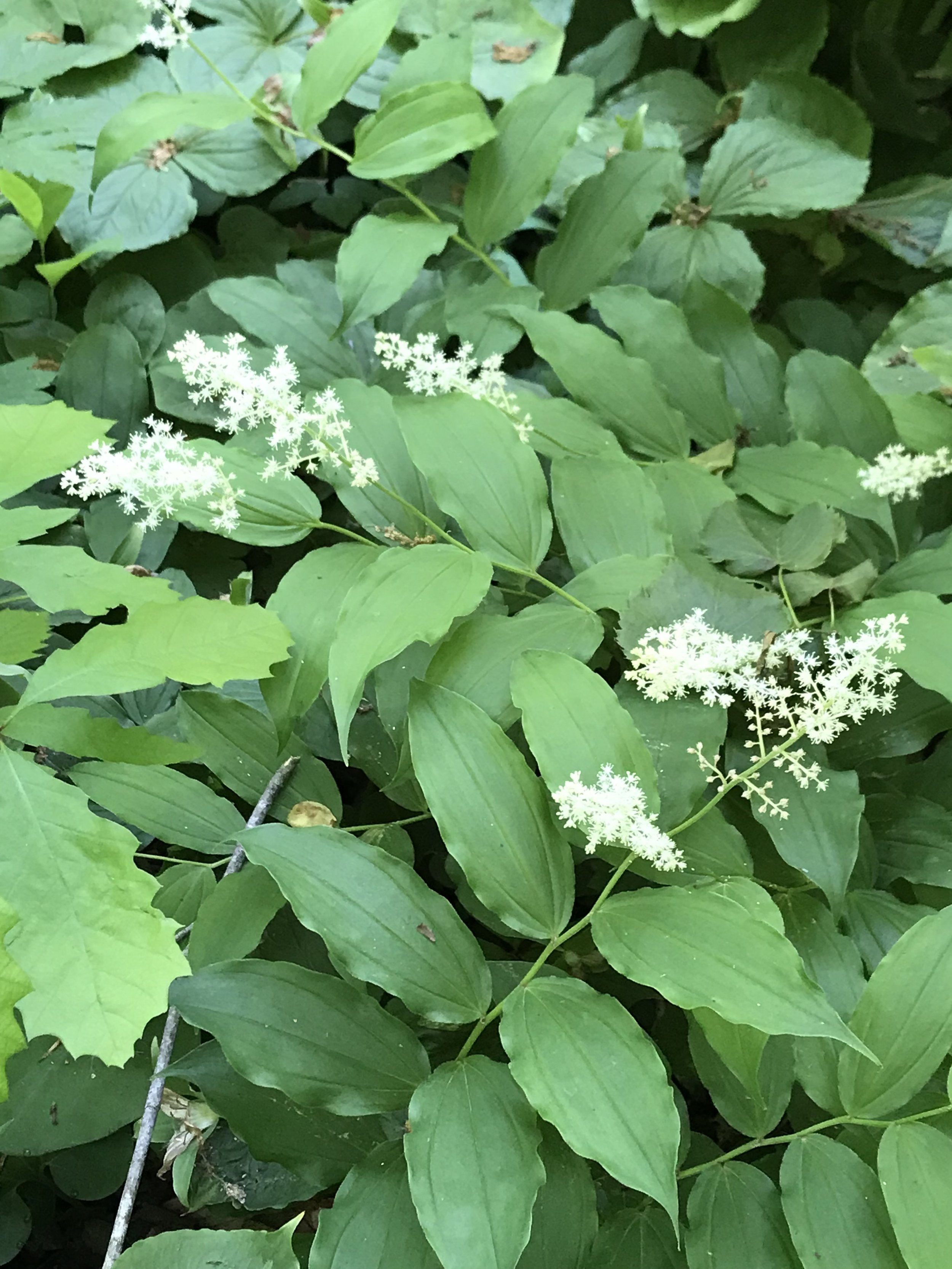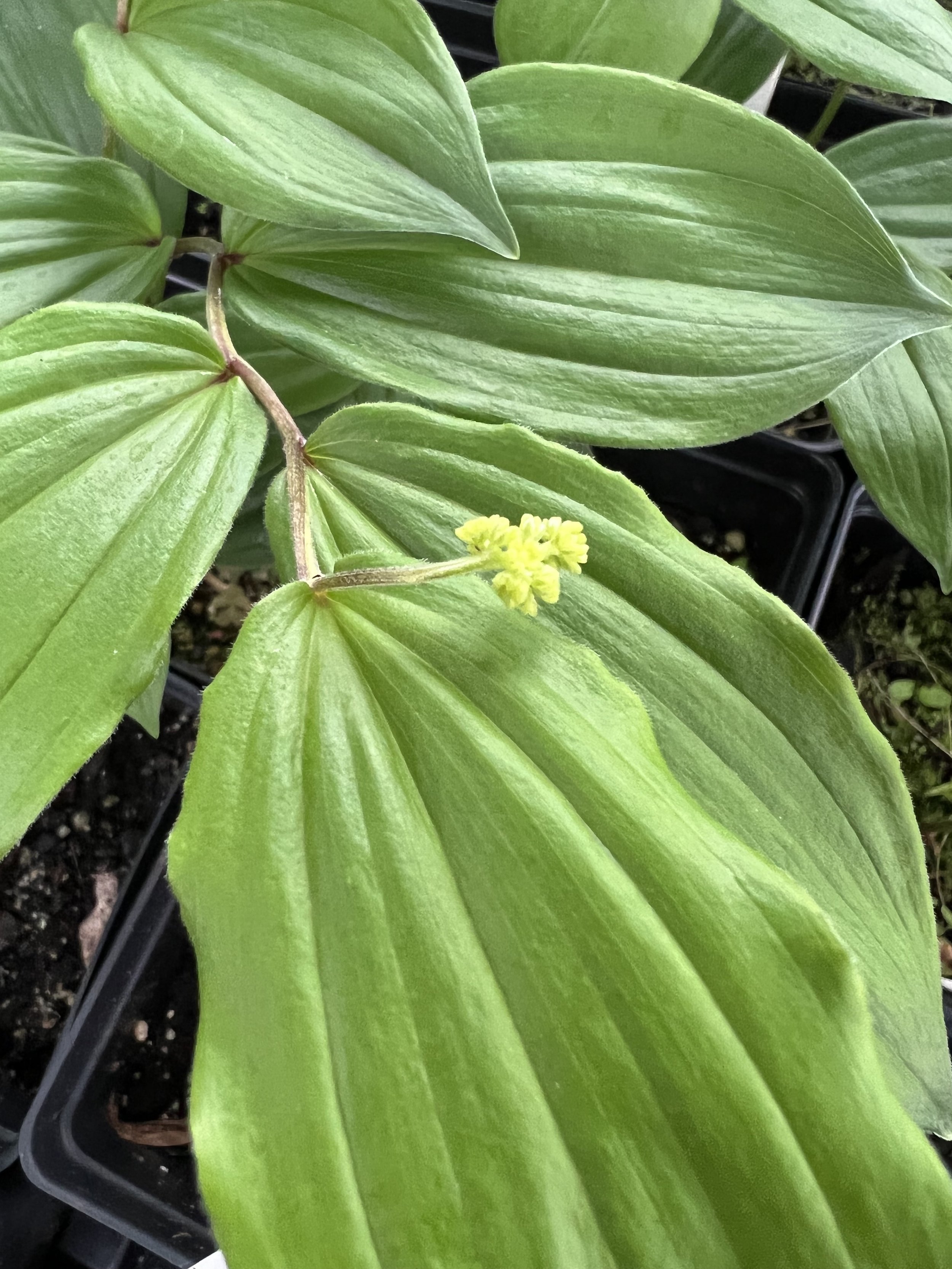 Image 1 of 9
Image 1 of 9

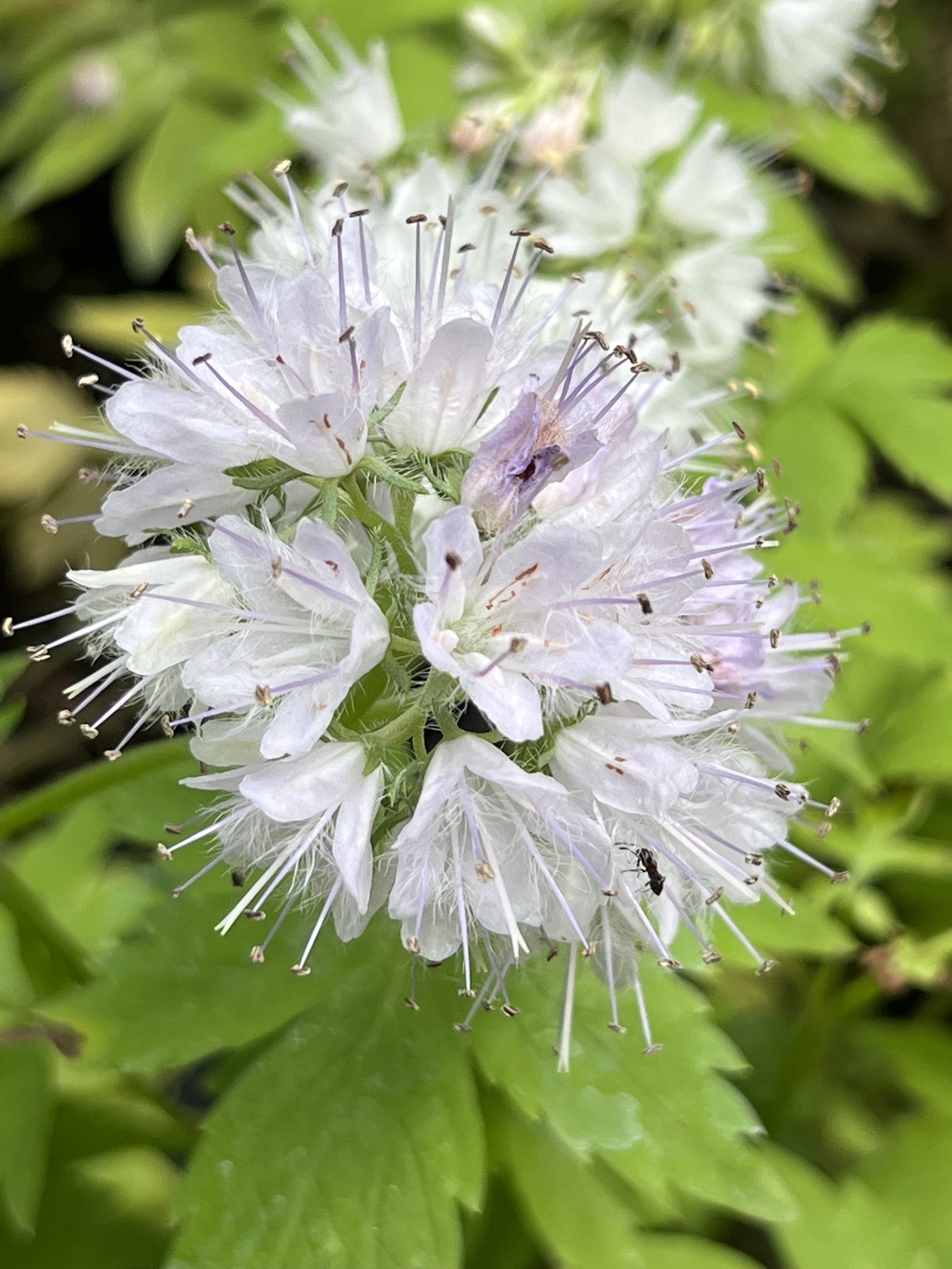 Image 2 of 9
Image 2 of 9

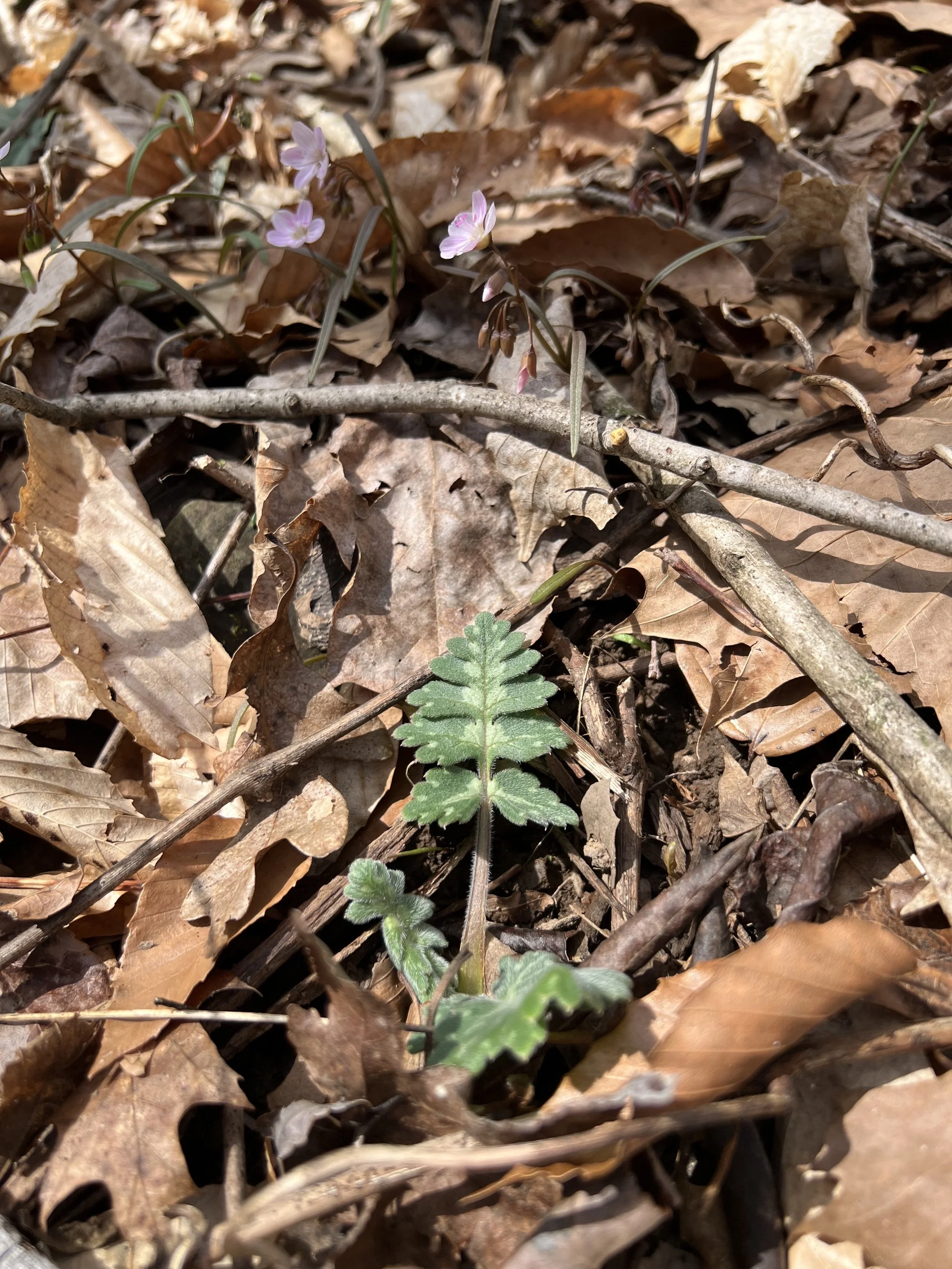 Image 3 of 9
Image 3 of 9

 Image 4 of 9
Image 4 of 9

 Image 5 of 9
Image 5 of 9

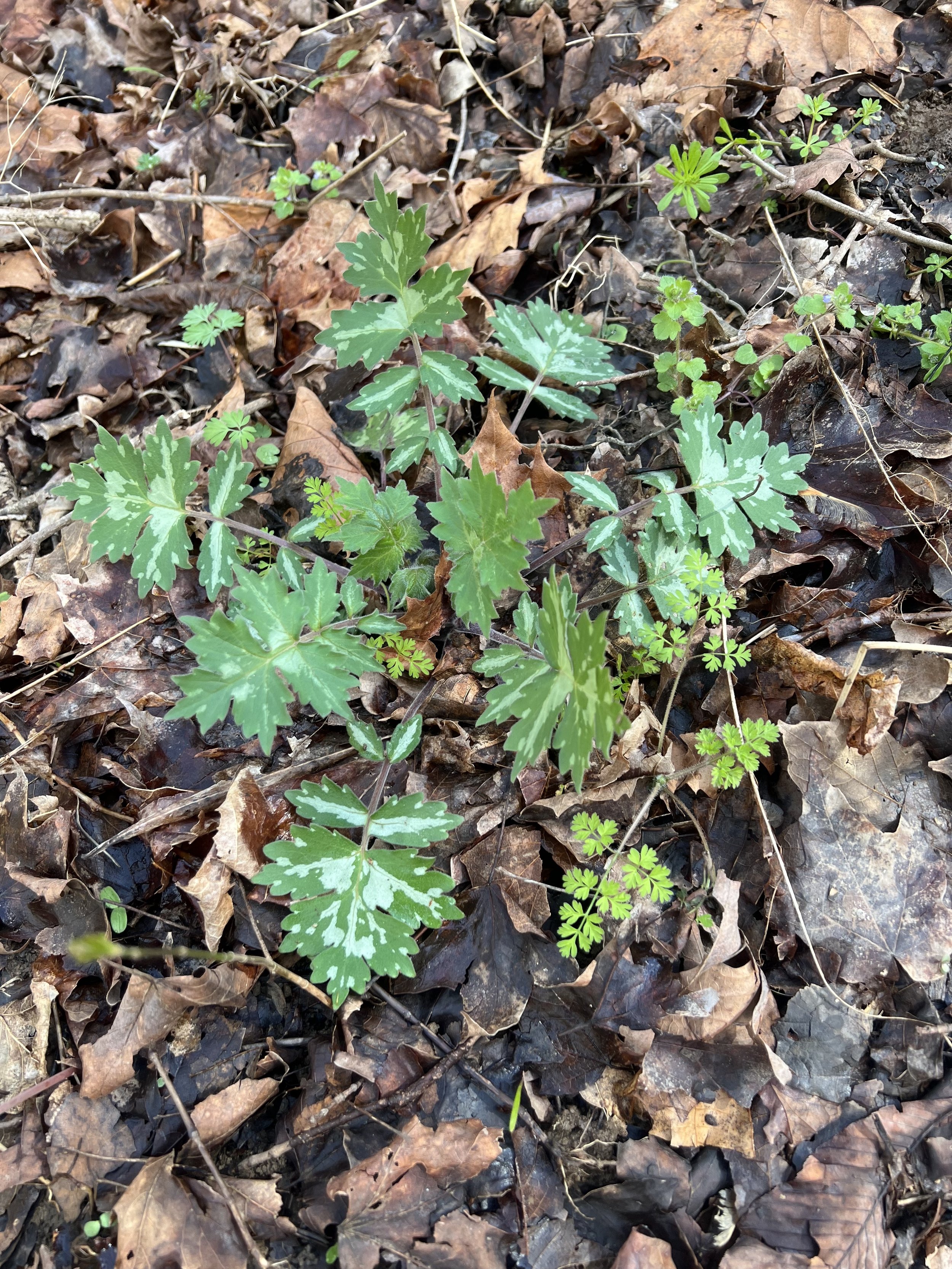 Image 6 of 9
Image 6 of 9

 Image 7 of 9
Image 7 of 9

 Image 8 of 9
Image 8 of 9

 Image 9 of 9
Image 9 of 9










Virginia Waterleaf (Hydrophyllum virginianum)
Virginia Waterleaf’s first leaves in the spring have scattered white patches on their upper surfaces. This is where the name “waterleaf” and “Hydrophyllum” come from. The spots look like watermarks and they fade as the leaf ages.
Leaves are deeply lobed or even compound. They vary from a dark green to a limey green. This plant can make a nice ground cover as it persists into the summer. They look quite impressive in a big stand. Keep decaying leaves around the plants: they like rich soil and medium well-drained soil.
Flowers are tubular and from white to lavender. The sepals have stiff looking hairs on the edges. There are five lobes on the corolla (flower tube). Stamens are quite long, sticking out beyond the corolla, and they have many filaments attached to them producing a decorated effect. Down inside the tube is the ovary.
The flowers of Virginia Waterleaf attract a lot of bee species. Once pollinated seed pods form, each with 1 or more large, roundish cream-colored seeds.
Plants may spread by rhizome and they also self-seed. Some sites say that this plant may not be good for a small yard. An experience I can relate is a project I’ve been doing in a yard where English Ivy and Vinca have been growing for years. Virginia Waterleaf is present and has held its own surrounded by these invasive forces.
Companion Plants: beak grass, gray’s sedge, James’ sedge, cardinal flower, zig zag goldenrod, maidenhair fern, wild yam, moonseed vine
VIrginia Waterleaf (Hydrophyllum virginianum)
Michigan Flora reference page for state distribution: Virginia Waterleaf
height: 12-18 inches
bloom time: May-June
soil: medium, rich
sun: partial, shade
plant spacing: 12”
flower: white, pink, lavender
life cycle: perennial
family: Boraginaceae
seed source: Michigan
Virginia Waterleaf’s first leaves in the spring have scattered white patches on their upper surfaces. This is where the name “waterleaf” and “Hydrophyllum” come from. The spots look like watermarks and they fade as the leaf ages.
Leaves are deeply lobed or even compound. They vary from a dark green to a limey green. This plant can make a nice ground cover as it persists into the summer. They look quite impressive in a big stand. Keep decaying leaves around the plants: they like rich soil and medium well-drained soil.
Flowers are tubular and from white to lavender. The sepals have stiff looking hairs on the edges. There are five lobes on the corolla (flower tube). Stamens are quite long, sticking out beyond the corolla, and they have many filaments attached to them producing a decorated effect. Down inside the tube is the ovary.
The flowers of Virginia Waterleaf attract a lot of bee species. Once pollinated seed pods form, each with 1 or more large, roundish cream-colored seeds.
Plants may spread by rhizome and they also self-seed. Some sites say that this plant may not be good for a small yard. An experience I can relate is a project I’ve been doing in a yard where English Ivy and Vinca have been growing for years. Virginia Waterleaf is present and has held its own surrounded by these invasive forces.
Companion Plants: beak grass, gray’s sedge, James’ sedge, cardinal flower, zig zag goldenrod, maidenhair fern, wild yam, moonseed vine
VIrginia Waterleaf (Hydrophyllum virginianum)
Michigan Flora reference page for state distribution: Virginia Waterleaf
height: 12-18 inches
bloom time: May-June
soil: medium, rich
sun: partial, shade
plant spacing: 12”
flower: white, pink, lavender
life cycle: perennial
family: Boraginaceae
seed source: Michigan
There are two other species of Hydrophyllum. This is the only one with such deep lobes in the leaves. There are other differences too and you can read about those on the species pages of Illinois Wildflowers . We do not carry the other species.
